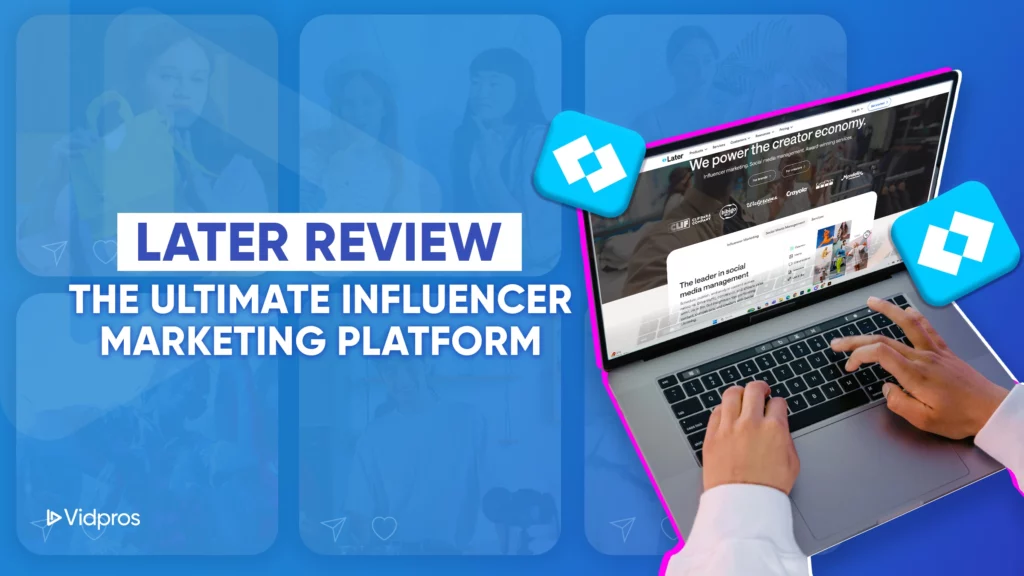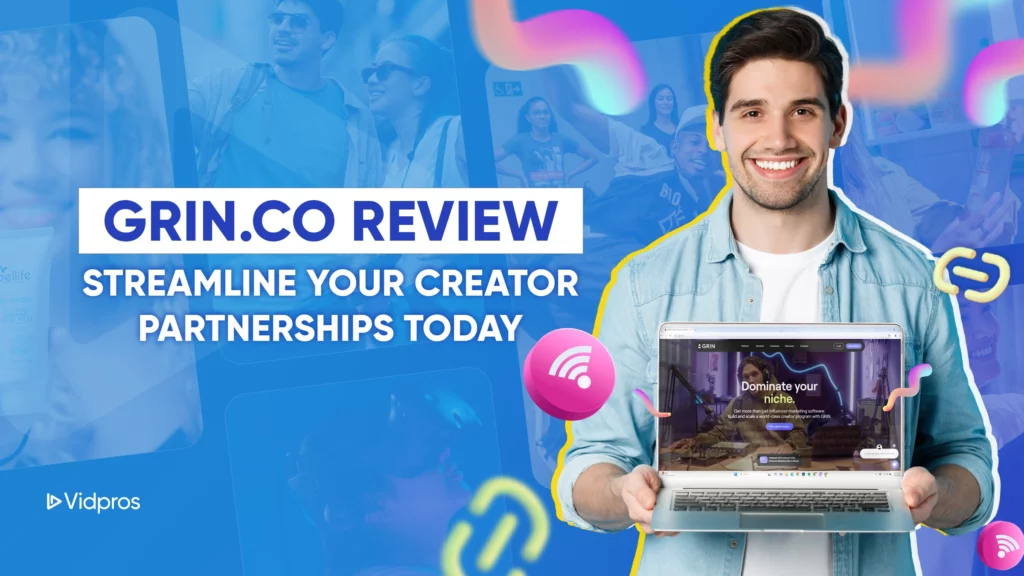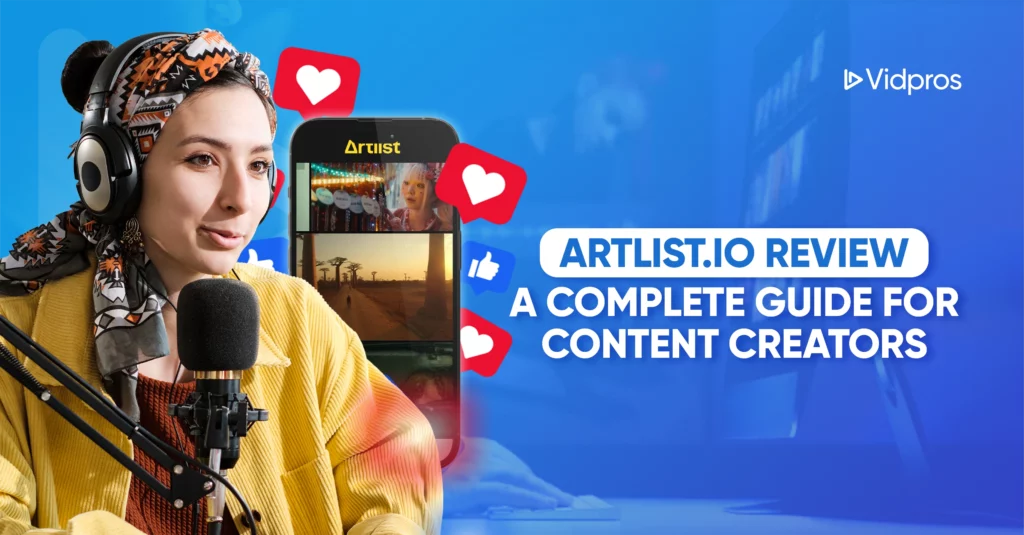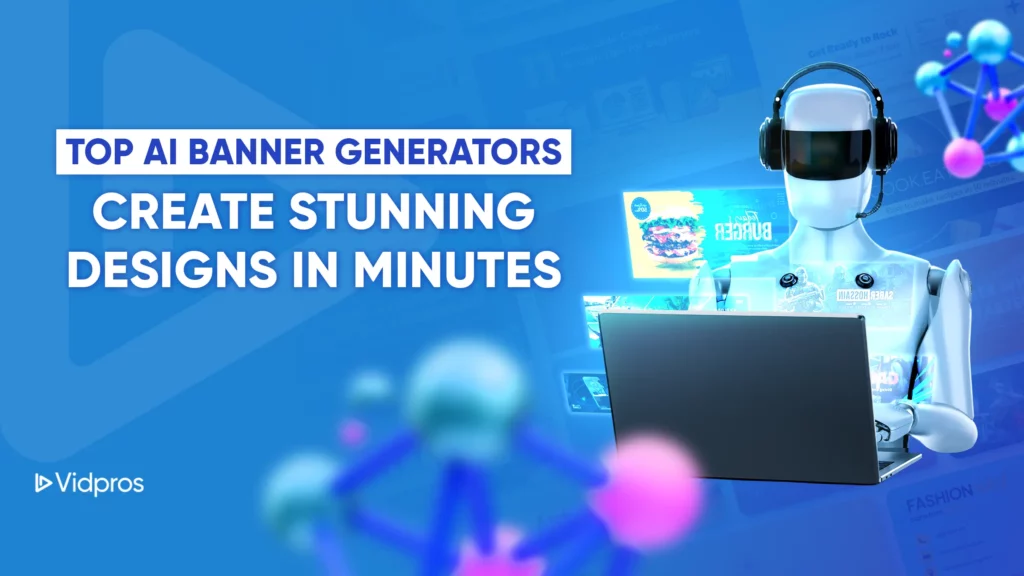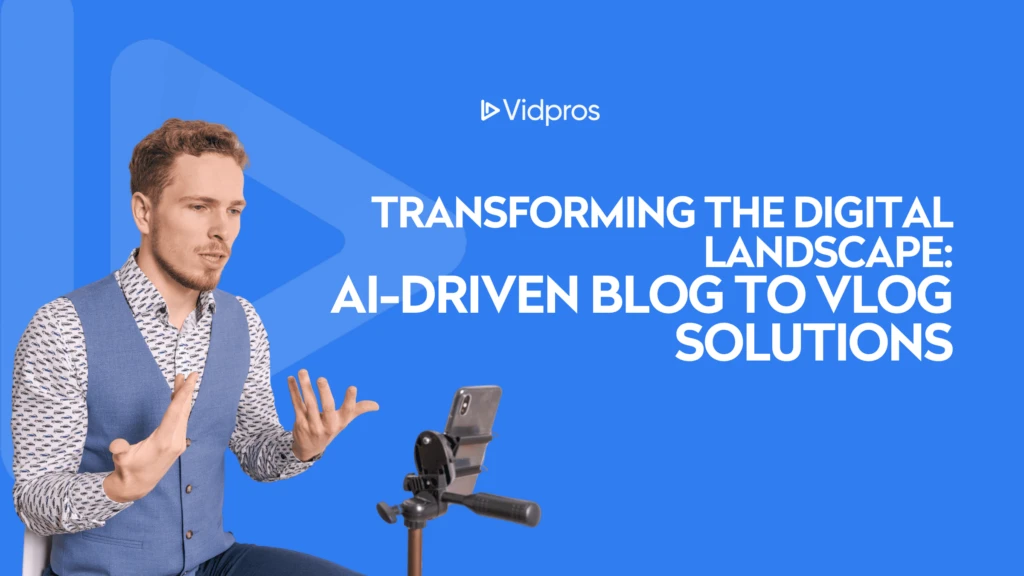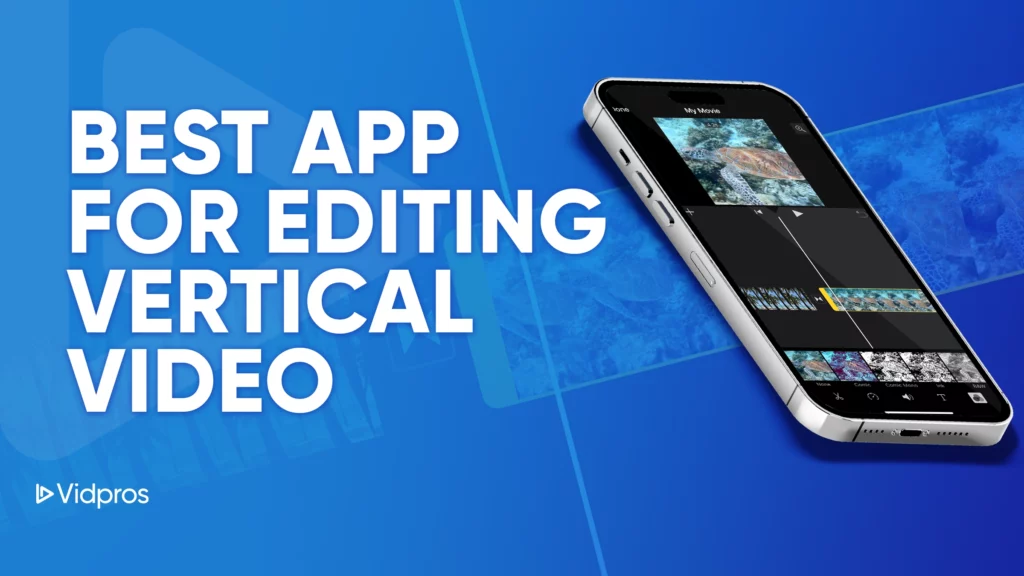Artificial intelligence (AI) has been the talk of the town in recent years, and it is only becoming increasingly essential to our daily lives.
Content creators use AI tools to streamline workflows, generate ideas, and automate processes.
According to a survey by Authority Hacker, 75% of digital marketers use AI for work, with more than 85% admitting to using AI writing tools to create articles.
This shows that AI has become an irreplaceable part of the content strategy to create engaging content for content and video creators and reach the target audience.
Here, let’s discuss the best AI tools for content creators and how they affect the content creation process.
Best AI Tools for Content Creators
Here are the 10 best AI tools for content creation:
ChatGPT

ChatGPT is an AI model that is a part of natural language processing that can be used to create relevant content for a consistent brand voice.
It is one of the world’s most popular AI tools, with 400 million weekly users as of February 2025.
ChatGPT is mainly used to brainstorm ideas, translate, code, create AI scripts, analyze data, and manage research-heavy tasks. Hence, you can save time and energy as there is no need to do a Google search.
It can also create audio tracks, logos, and AI-generated videos with the right prompts.
Pros
- Efficiency and speed
- Cost-effective
- Versatile
- Available 24/7
Cons
- Lack of creativity and originality
- Contextual limitations
- Dependence on user instructions
- Potential for errors and inaccuracies
Pricing
ChatGPT has five tiers to choose from.
It has a free version that has access to GPT-4o mini and real-time data from the web and search engines.
However, it has limited access to GPT-4o and o3-mini, as well as features such as file upload and image generation.
The Plus tier levels up productivity and creativity with expanded access for $20 per month.
The Pro tier has the best of OpenAI and the highest level of access at $200 per month.
The Team tier supercharges the team’s work with a secure and collaborative workplace. It is priced at $30 per user for a monthly subscription and $25/month per user, billed annually.
Lastly, ChatGPT has an Enterprise tier for enterprise-grade AI.
Grammarly

Grammarly is an English writing assistant tool that was founded in 2009.
In addition to grammar and spelling checks, Grammarly also has features such as tone adjustment, full-sentence rewrites, and strategic suggestions.
Recently, it was updated with a new AI writing assistant that can help generate content ideas and draft emails and other documents.
It can also produce AI-generated content and product descriptions, although it is not a good tool for long-form content.
This tool is directly integrated into platforms such as Google Docs, Gmail, and Microsoft Word, giving real-time suggestions to improve writing.
Pros
- Real-time grammar correction
- Highly accurate
- Easy-to-understand explanations
- Customizable
- Ease of use
Cons
- Does not work on everything
- Limited free version
- Aggressive advertising
Pricing

Grammarly has a free version, but it also has a Premium version, with a monthly subscription of $12.
Grammarly also has an Enterprise tier for businesses who want to drive results across the entire organization with Grammarly.
The enterprise tier includes features that are not available in other tiers, including:
- Dedicated support
- BYOK encryption
- Custom roles and permissions
- Data loss prevention
- Cost center visibility
- Generate text with unlimited AI prompts
Synthesia

Synthesia is the best AI video generator; it allows users to generate realistic AI avatar videos.
Synthesia is used to create training modules and presentations, making it a favorite video-generation tool among learning and development teams.
Synthesia streamlines the process of creating high-quality content by turning text into video, simplifying the video production workflow.
Although it is popular for training videos, Synthesia can handle a wide range of needs, such as onboarding new employees, creating customer support or knowledge-base videos, and internal communications.
Synthesia can also produce personalized sales outreach videos, B2B marketing content, product demos, and explainer videos.
Synthesia is great for corporate-style videos, but it is not suitable for cinematic visuals and storytelling.
Pros
- No film production needed
- Multimedia options
- Large database of avatars
- Automatic embed updates
Cons
- Unrealistic avatars
- Lack of media blending
- Limited scalability
- No personalization
Pricing

It has a free plan that gives users the ability to generate up to 36 minutes of video per year.
Synthesia also has a paid Creator plan, starting from $64 per month. The Creator plan allows AI dubbing, branded video pages, API access, and multiple avatars per scene.
Synthesia also has an Enterprise tier for businesses with the following features:
- Unlimited video minutes
- 1-Click translations
- Live collaboration with teams
- SAML/SSO
- Brand kits
- Unlimited creators and guests
- Unlimited personal avatars
- 230+ stock avatars
- Dedicated customer success manager
- Tailored onboarding and training
- SCORM export
Fathom

Fathom AI Notetaker is one of the best AI meeting recorder tools available on the market today.
It records meetings seamlessly, creates structured summaries, and provides a full transcript with timestamps.
Key features include real-time collaboration, AI-driven editing, cloud-based platform, interactive video features, comprehensive analytics, and scalable video solutions.
Pros
- Extensive format support
- Custom branding options
- Advanced security features
- Multi-platform integration
- Responsive customer support
Cons
- High bandwidth usage
- Limited browser support
- No offline capability
- Subscription model
Pricing

The Fathom app is free, but it has some limitations. The paid plans have more features, and there are three tiers to choose from.
The monthly subscription fee for the Premium plan is $15 per user.
The Team Edition plan is priced at $19 per user per month.
Lastly, the Team Edition Pro plan is priced at $29 per user per month.
Canva

Canva is one of the best AI design tools in the market today. It has been a staple tool for designers for years.
Its newly added AI-powered Magic Studio takes Canva to the next level with the following features:
- Magic Design: This tool allows users to create custom designs in seconds with a text prompt, creating high-quality output.
- Magic Switch: It is a tool used to change the format and transform a design into something new. Magic Switch can transform a design into a blog post, summary, or social media post. It can also redesign the design for other channels and transform the design into different languages.
- Magic Media: This AI image generator allows users to choose image variations based on their preferred look and composition. The free version can generate up to 50 images, while Canva Pro allows 500 uses monthly.
- Magic Expand: It is an AI image expander that can extend images in any direction with AI.
- Magic Grab: It isolates all elements in the design or photo, allowing users to edit, resize, and reposition them individually.
- Magic Edit: This AI-powered tool enables users to type to remove or add anything in just one click.
- Magic Eraser: It allows users to clean up the shots to remove unwanted objects and people.
Pros
- User-friendly interface
- Extensive social media template database
- Free version
- Web-based platform
- Customizable brand kid
- Print and delivery services
Cons
- Limited advanced design features
- Costly with paid plans
- Limited file export options
- Storage limitations
- Intellectual property concerns
Pricing
Canva has a free version, but it also has three paid tiers from which to choose.
Canva Pro’s annual subscription fee is US$120 per user.
The annual subscription for Canva Teams is US$100 per person, with a minimum of three users.
Canva also has an Enterprise tier for organizations looking for an all-in-one workplace solution.
Asana

Asana, one of the best project management software available worldwide, is a work management platform used to stay focused on goals, projects, and tasks to drive growth.
Key features include task management, projects and portfolios, workflows, time tracking, collaboration, and goals.
Asana can be set up in two ways: workspace and organization.
A workspace is the highest-level organization unit in the platform.
Meanwhile, an organization is a type of workspace that represents a company. Under an organization, projects can be grouped into teams.
Pros
- User-friendly design
- Multiple languages
- Desktop and mobile apps
- Many third-party integrations
Cons
- Costly plans
- Limited reporting
- No GPS time tracker
Pricing
Asana has a free version that is best for individuals and small teams looking to manage their tasks.
It also has two paid plans to choose from.
The Starter plan is best for growing teams that need to track their projects’ progress and meet deadlines.
The subscription fee for the Starter plan is $10.99 per month per user when billed annually and $13.49 per user when billed monthly.
The Advanced plan is for companies that manage a portfolio of work and goals across different teams.
The subscription fee for the Advanced plan is $24.99 per month per user when billed annually and $30.49 per user when billed monthly.
Clockwise

Clockwise is an AI-powered scheduling tool used to optimize the calendar by managing meetings and creating uninterrupted Focus Time.
Clockwise also facilitates easier meeting coordination as it finds the best times for meetings.
Pros
- Helps team stay organized
- Scheduling links
- Great customer service
- Customization
Cons
- Conflicts with other apps
- Problems with the AI scheduler
- Unsupported apps
Pricing
Clockwise has a free version for individuals and teams who need innovative calendar management for a healthier workday.
It also has three paid plans to choose from.
The Teams plan subscription is $6.75 monthly, billed annually. It is best for teams looking to create and protect Focus Time automatically.
The Business plan is for companies looking into automating their calendar management. The subscription fee is $11.50 per month, billed annually.
Lastly, the Enterprise plan is for businesses with advanced security and customization needs. It is also paid per user per month and billed annually.
Notion

Founded in 2013, Notion aims to create a connected workplace with better and faster work.
Notion is an all-in-one collaboration tool that increases efficacy across projects and workflows.
It is also adaptable and can be simple or robust, depending on your needs.
Pros
- Cost-efficient
- User-friendly for teams
- Time-saving
- Portable multi-platform support
- Free templates
Cons
- Steep learning curve
- Mobile app usability
- Limited table functions
- Template creation complexity
- Lack of specialized features
Pricing
Notion has a free version for individuals who want to organize their personal projects.
It also has three paid plans to choose from.
Notion Plus is best for small teams and professionals working together. The monthly subscription is $10/seat.
The Business plan is best for growing businesses that aim to streamline the teamwork. The monthly subscription for this plan is $15/seat.
Notion also has an Enterprise plan for organizations looking to operate with scalability, control, and security.
Murf

Murf AI is an AI-powered voice-generation tool that converts written text into spoken words.
It analyzes the written text to determine its structure, tone, and language. Then, it uses neural network algorithms to convert the written words into a speech waveform.
Murf also allows users to adjust the pitch, tone, and speed, helping to fine-tune how the lines are delivered.
It also has a voice cloning tool that allows users to create a replica of their own voices.
Pros
- Increased accessibility
- Time-saving
- Multilingual capability
- Human-life speech
- Cost-effective
Cons
- Lack of personalization
- Mispronunciation of words
- Limited voice options
- Limited emotional range
Pricing
Murf has a free version. It also has four premium plans to choose from.
The Creator plan is a starter plan used to create voiceovers for individuals and freelancers. The features include five projects, 24 hours of voice generation per year, and one editor.
The monthly subscription fee for the Creator plan is $19 but billed annually at $228.
The Growth plan has the following features: 50 projects, 96 hours of voice generation per year, and 1 editor. The subscription fee is $66 but billed annually at $792.
The Business plan is an advanced plan with features for high-usage business needs, such as 200 projects, 240 years of voice generation per year, and one editor. The monthly subscription fee is $199 but billed annually at $2388.
Notion also has an Enterprise plan, offering unlimited access and enterprise-grade security and support.
Descript

Descript is an AI-powered video editing tool with a unique take on video creation and editing.
Descript, unlike traditional editing tools with complex timelines and features, transcribes videos and links the text to the video segments. Hence, you just need to delete the text corresponding to the video segment to delete it.
This simplifies the editing process and allows bulk edits, which is not possible in traditional editing tools.
Features include transcription-based editing, bulk edits, silence removal, and overdub feature.
Pros
- Ease of use
- Affordability
- Accurate transcriptions
- Template and video library
Cons
- Loading speed
- Transcription limitations
- No mobile app
- Limited template options
Pricing
Descript has a free version that can help individuals get started on their creative journey with text-based editing.
It also has four paid plans to choose from.
The monthly subscription fee for the Hobbyist plan is $12 per person. This plan includes 10 transcription hours per month, export 1080p without a watermark, 20 uses of the Basic AI suite, and 30 minutes of AI speech per month.
The monthly subscription fee for the Creator plan is $24 per person. This plan includes 30 hours of transcription per month, 4k videos without a watermark, unlimited use of the Basic and Advanced AI suite, and 2 hours of AI speech per month.
The Business plan includes 40 hours of transcription per month, free Basic seats for collaboration, unlimited access to the full Professional AI suite, 5 hours of AI speech per month, 2 hours of dubbing per month in 20+ languages, and priority support with SLA.
Descript also has a custom Enterprise plan for organizations looking for tailored solutions and enterprise-grade security.
Ethical Concerns About Using AI Content Creation Tools
With the widespread use of AI nowadays, issues arise on how we can use it ethically.
Here are some of the ethical concerns about using AI content creation tools:
Bias and Discrimination
Bias and discrimination are two ethical issues associated with AI in content creation.
Bias and discrimination happen when an AI algorithm is trained on a biased dataset, resulting in incorrect or untrue conclusions.
Privacy and Data Protection
Privacy and data protection are vital ethical issues when using AI for content creation.
Considering that AI algorithms analyze vast amounts of data, they may collect and use personal information from users without their consent.
This phenomenon violates the users’ rights to privacy and undermines trust in the technology and the company using it.
Hence, companies must ensure that AI tools comply with privacy and data protection regulations. Companies must also ensure transparency on how they collect data and how it will be used.
Companies should also give users the choice to opt out of using their data for AI training.
Accountability and Transparency
Accountability and transparency refer to the responsibility of AI companies to clarify how their algorithms work and own up to the outcomes they produce, especially in the context of AI in content creation.
These two aspects are crucial because they foster trust and prevent harm.
Hence, developers should test their algorithms regularly to respond to feedback from the stakeholders and users.
The Bottomline
AI is already a huge part of our lives, and this is especially true when it comes to content creation.
AI allows content creators to streamline their workflow, automate their processes, and save costs. However, there are concerns about whether using AI for content creation is ethical.
Hence, AI companies should always test their algorithms to implement feedback from users and allow users to keep their data away from AI training.
If you want to outsource your video editing needs to a reliable team, look no further! We at Vidpros are dedicated to giving you the best service so you can focus on creating content.






